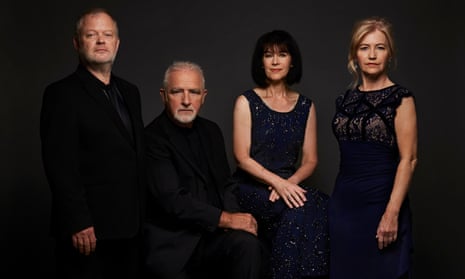The Brodsky Quartet have taken their time over the Beethoven quartets. In 2006, they released a disc of two of the Rasumovsky quartets, Opp 59 Nos 2 and 3, and followed that two years later with the Op 18 set, interleaving the six works with specially commissioned new pieces. Only now, for the beginning of Beethoven’s 250th-anniversary year, have they tackled the late quartets. Their set includes the F minor Quartet Op 95 as well as the works generally regarded as part of the “late” canon, Opp 127, 130 (with both of its finales), 131, 132 and 135. The recordings were made over a two-year period, before the departure of the group’s first violin, David Rowland, last year.

There is no shortage of outstanding recordings of these summits of the quartet repertory. For starters, the Budapest and Busch Quartets from the era of 78s, the Quartetto Italiano or the Hollywood Quartet from the time of vinyl LPs, and the Takács and the Alban Berg from the digital era, are all available on CD. The anniversary will doubtless bring several more contenders. But while the Brodsky versions may not threaten the positions of any of the established great sets, they certainly have their own distinctive virtues, and the highlights reach very high indeed.
Technically, these performances are immaculate, so it all comes down to a question of personal taste. To me, the account of the A minor Quartet Op 132 is the outstanding interpretation here, with its serene Adagio, the Heiliger Dankgesang, taken as slowly as anyone could dare, and the intensity of its finale ratcheted up with perfect sureness. But as a whole, the final quartet, the F major Op 135, seems just a little glib, a little too relaxed. In the C sharp minor work Op 131, the unfolding of the opening fugue is beautifully done, even if its Presto scherzo is made to seem just a bit too much like Mendelssohn, while in the B flat Op 130, it’s the scherzo that has just the right scurrying sense of breathlessness, and the Cavatina that seems to avoid the depths of feeling that some groups – the Busch Quartet, most famously – have found in it.
As in any cycle of these inexhaustible works, everyone has to pick and choose what they admire, but there is no doubting that these are performances of some of the greatest music ever written to be taken seriously.

Comments (…)
Sign in or create your Guardian account to join the discussion